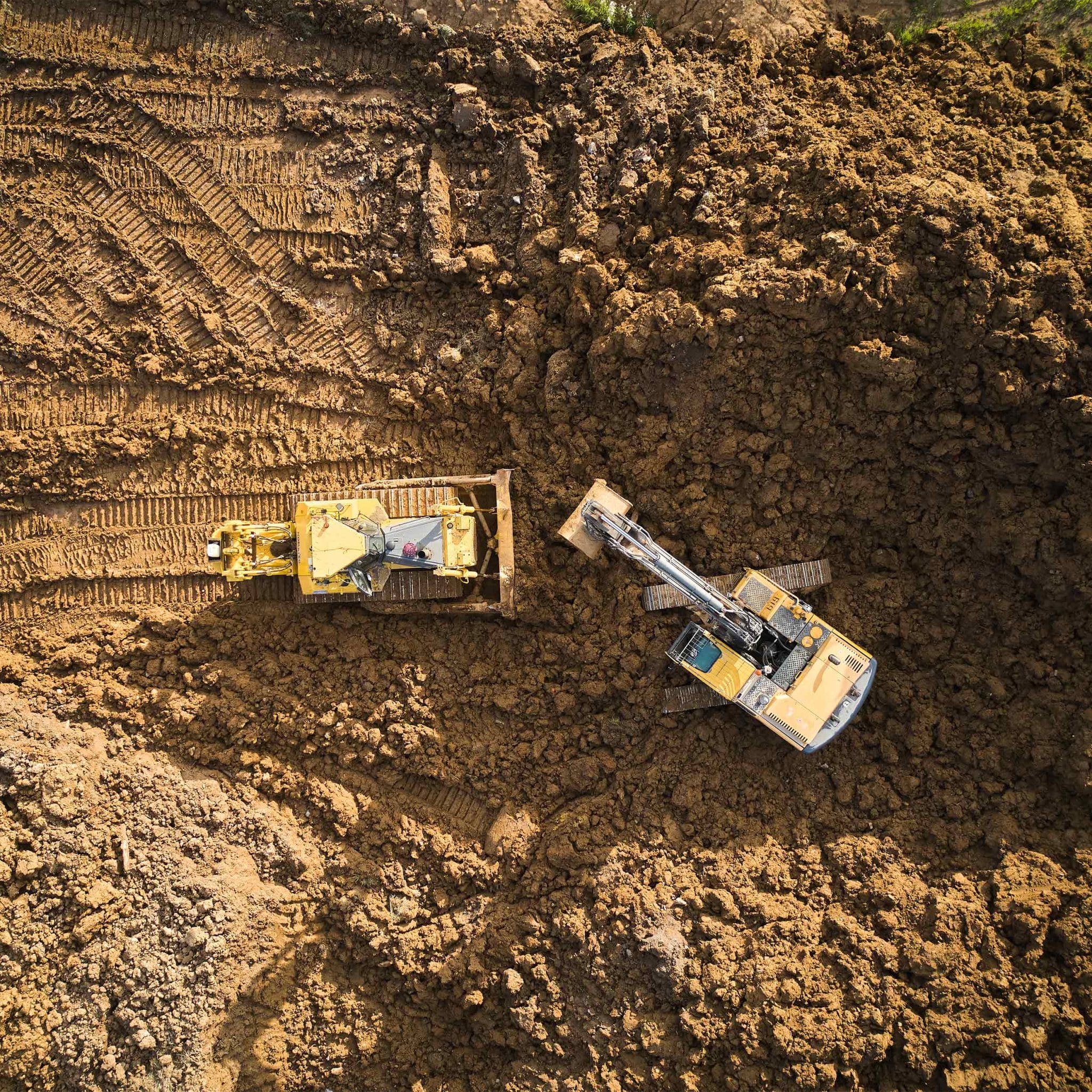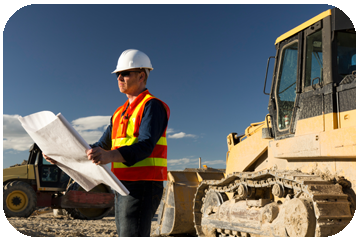A Comprehensive Guide to Coming To Be an Effective Geotech Engineer
A Comprehensive Guide to Coming To Be an Effective Geotech Engineer
Blog Article
Recognizing the Comprehensive Role of Geotechnical Designers in Ground Investigation and Dirt Analysis for Building And Construction Jobs
Geotechnical designers are indispensable to the success of building and construction tasks, giving important insights through thorough ground examinations and dirt evaluation. Their expertise in assessing dirt actions and using innovative testing strategies notifies critical choices that support structural stability and security.
Role of Geotechnical Engineers
The crucial duty of geotechnical designers in building projects can not be overemphasized, as they supply necessary insights into dirt habits and site problems. These professionals are tasked with analyzing the suitability of the ground for various kinds of frameworks, guaranteeing safety and security throughout the construction procedure. Their know-how includes a variety of activities, including website characterization, soil tasting, and laboratory screening, which are important for determining the mechanical and physical properties of the dirt.
Geotechnical engineers use their findings to create foundational styles that accommodate load-bearing needs and reduce risks associated to soil incline, liquefaction, and settlement security. They play a vital duty in determining possible risks, such as groundwater variations and contamination, which can dramatically affect task feasibility. Additionally, they team up with designers, civil designers, and professionals to make sure that geotechnical considerations are integrated right into the overall style and construction phases.
Ground Investigation Methods
Ground investigation methods develop the foundation of geotechnical design, making it possible for engineers to acquire an extensive understanding of subsurface problems. These methods are crucial for assessing soil residential properties, figuring out groundwater degrees, and recognizing possible geological threats.
Usual methods include borehole exploration, which allows for the removal of dirt examples at numerous midsts, giving critical information for evaluation. In addition, sitting screening strategies, such as Common Infiltration Examinations (SPT) and Cone Penetration Tests (CPT), are employed to evaluate soil toughness and thickness directly in the ground.
Geophysical methods additionally play a considerable role in ground examinations. Methods such as seismic surveys and electrical resistivity tomography aid analyze subsurface attributes without substantial excavation. geo tech engineering. These non-invasive methods are particularly advantageous in delicate or huge locations where interruption should be reduced
Furthermore, exploratory trenches can be dug deep into to visually examine dirt layers and recognize any type of anomalies. Each of these strategies adds distinct insights, permitting geotechnical engineers to create precise website evaluations and educate design decisions. In recap, a combination of these ground investigation strategies is important for effective construction jobs, ensuring security and architectural honesty.
Soil Evaluation Approaches
Dirt analysis techniques are critical for recognizing the physical and chemical buildings of soil, which directly affect the layout and construction of foundations and various other structures. Various methods are used to analyze soil qualities, making sure that geotechnical designers acquire accurate data for notified decision-making.
One generally made use of method is grain size analysis, which figures out the circulation of fragment dimensions within a soil sample. This is crucial for identifying dirt kinds and predicting their behavior under load. One more crucial strategy is Atterberg limits testing, which assesses the plasticity and wetness web content of fine-grained dirts, offering insights right into their design properties.

Area tests, such as Conventional Infiltration Tests (SPT) and Cone Penetration Examinations (CPT), offer valuable in-situ data pertaining to dirt stamina and stratification. Collectively, these dirt analysis techniques create the foundation of geotechnical investigation, allowing designers to develop secure and efficient structures customized to the specific conditions of the site.
Threat Reduction Techniques
Applying effective risk mitigation techniques is essential for geotechnical engineers to deal with prospective obstacles in building and construction projects. These techniques are vital in recognizing, analyzing, and managing risks connected with soil conditions, site stability, and groundwater changes, which can negatively impact job results.
One key approach entails performing thorough site examinations that make use of innovative geophysical strategies and thorough dirt tasting. By getting exact information on subsurface problems, designers can make educated choices on style and building methods. Additionally, employing predictive modeling tools permits the simulation of various scenarios, making it possible for designers to predict possible troubles and apply safety nets.
Furthermore, developing clear interaction networks among project stakeholders fosters a joint technique to run the risk of management. Normal updates and appointments make sure that all parties know the advancing site conditions and can adjust their techniques accordingly.

Effect On Building And Construction Tasks
The performance of threat reduction methods straight influences the general success of building projects. Geotechnical read the article engineers play a pivotal role in this domain name, as their proficiency in ground investigation and soil evaluation educates essential choices throughout the building process. By accurately assessing dirt problems and recognizing possible dangers, these specialists make it possible for job teams to devise reliable options that minimize risks connected with ground instability, water seepage, and various other geotechnical difficulties.
The effect of comprehensive geotechnical analysis appears in numerous elements of construction tasks, consisting of cost management, task timelines, and structural integrity. Early recognition of issues permits timely interventions, decreasing expensive delays and budget overruns. A thorough understanding of site problems enhances the style and design procedure, guaranteeing that structures are built to withstand environmental pressures and possible all-natural catastrophes.
Eventually, the payments of geotechnical engineers are important to the effective execution of building tasks. Their job not just browse around this web-site cultivates safety and conformity with guidelines however likewise improves the lasting sustainability of structures, making certain that they perform properly throughout their desired life-span. The collaboration between various other stakeholders and geotechnical groups is vital for attaining ideal outcomes in construction endeavors.
Final Thought
In conclusion, geotechnical engineers carry out an essential function in building tasks through detailed ground investigations and soil analyses. Their proficiency in assessing dirt habits, using numerous investigation techniques, and carrying out threat mitigation methods substantially adds to the architectural honesty and safety and security of developed atmospheres. By collaborating with multidisciplinary teams, these specialists enhance job performance and guarantee compliance with security standards, inevitably bring about successful construction end results and reduced possible risks.
Geotechnical engineers are indispensable to the success of construction projects, supplying crucial insights through detailed ground examinations and dirt analysis.The essential role of geotechnical engineers in construction projects can not be overstated, as they give necessary insights right into dirt behavior and site problems. Their proficiency incorporates a broad array of tasks, consisting of website characterization, dirt sampling, and laboratory testing, which are essential for establishing the physical and mechanical buildings of the soil.
By accurately evaluating dirt problems and identifying possible threats, these experts make it possible for project teams to create reliable services that decrease risks connected with ground instability, water infiltration, and other geotechnical difficulties.
In final thought, geotechnical designers execute a critical feature in building tasks through extensive ground examinations and dirt Discover More analyses.
Report this page